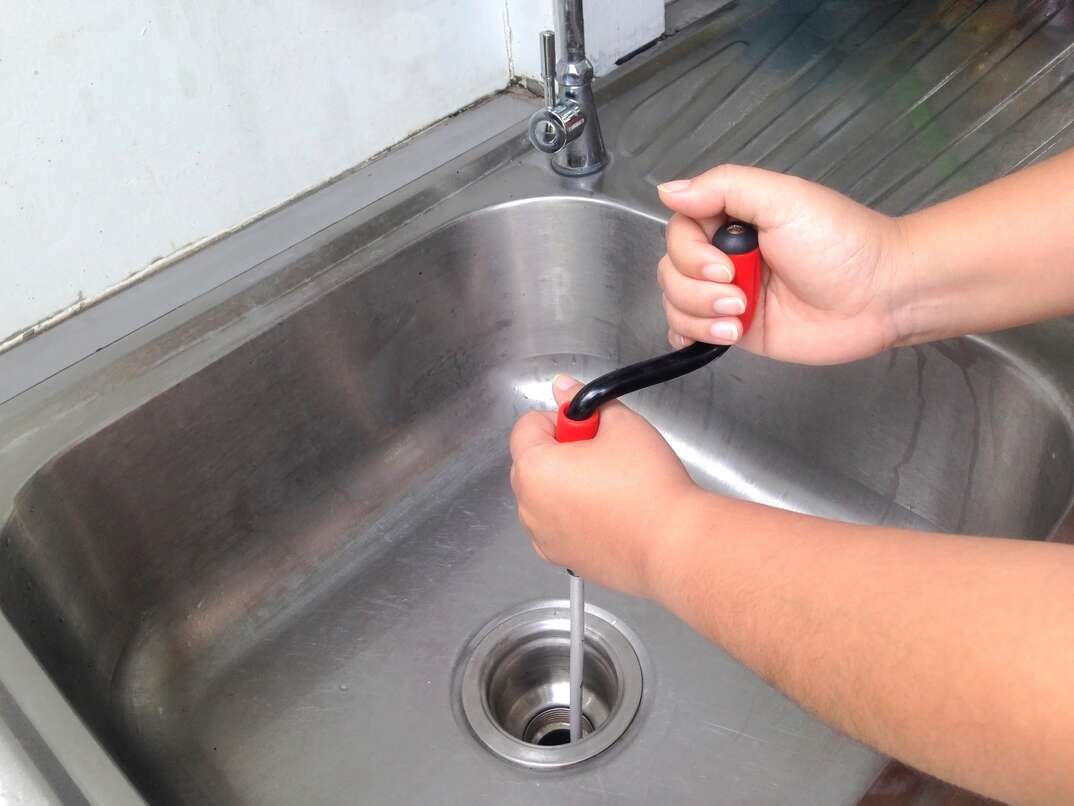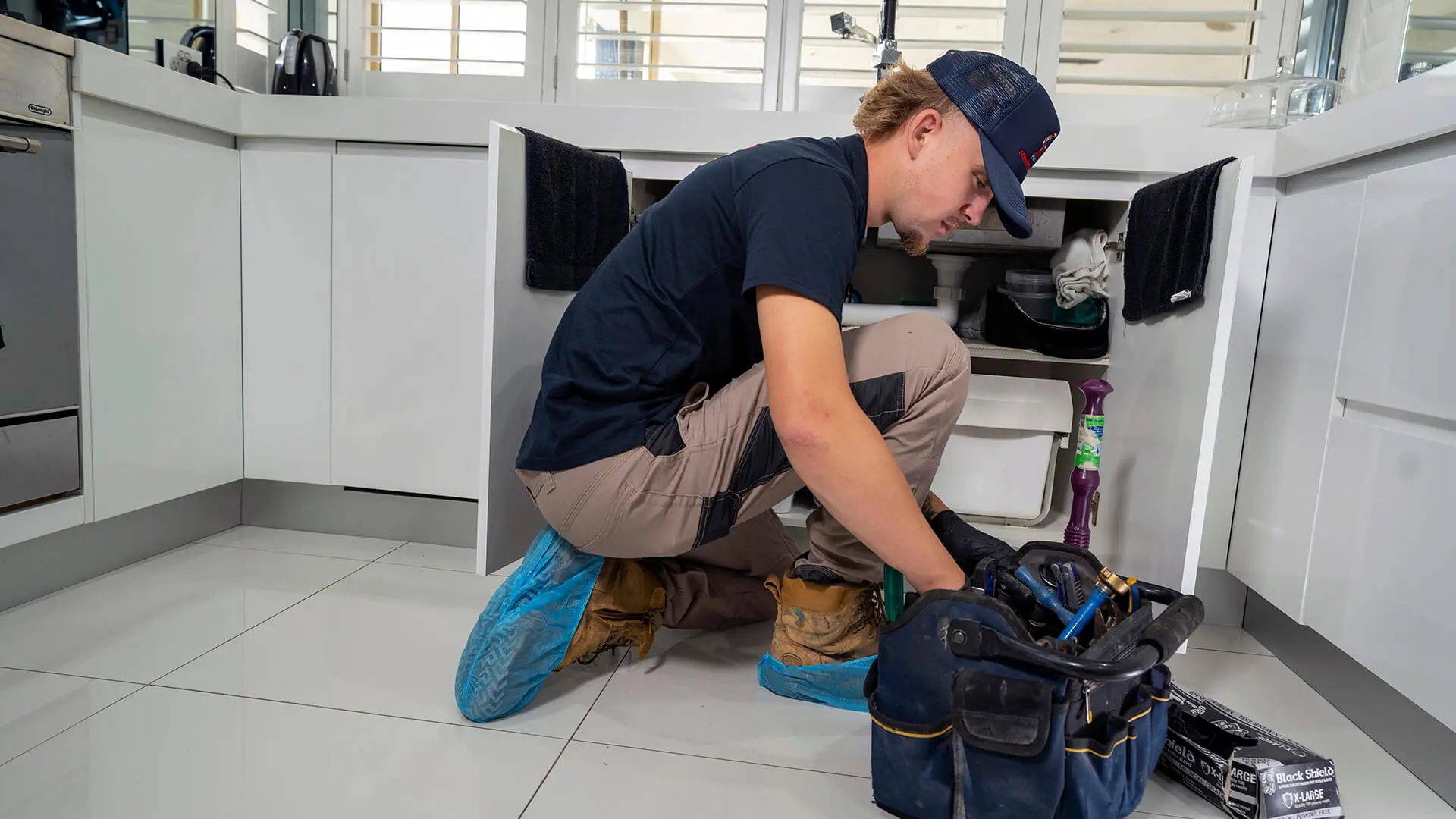Useful Tips For Resolving A Slow-Draining Sink
Useful Tips For Resolving A Slow-Draining Sink
Blog Article
In this article underneath you can find more high-quality insights concerning 4 Tips to Fix a Slow Draining Sink.

Intro
We've all been there: You're cleaning your teeth or washing your hands, and you discover the water pooling in the sink. Rather than rapidly swirling down the drain, it remains, turning your once-refreshing morning regimen into a small overload scene. A slow-draining sink isn't just bothersome; it's often an indication of larger plumbing problems hiding beneath the surface. The bright side is that most slow-draining sinks can be repaired with a little knowledge, a couple of standard devices, and some perseverance. Ready to tackle this project head-on? Let's roll up our sleeves and dive right in.
Understanding the Root Causes Of a Slow-Draining Sink
Prior to you begin poking around in your pipelines, it aids to recognize what could be causing the stagnation. Recognizing the source makes it less complicated to select the appropriate fix.
Tools and Products You'll Need
The right tools make all the difference. Fortunately, you won't need a completely equipped plumbing technician's van to do the job.
Step-by-Step Overview to Fixing a Slow-Draining Sink
Currently, allow's enter the nitty-gritty. This step-by-step process will certainly guide you via straightforward strategies to restore your sink's drainage.
Step 1: Remove and Tidy the Stopper
Usually, the stopper (that tiny plug you lower to obstruct water) is the first perpetrator. Remove it thoroughly and wipe any hair or gunk entraped around its base. Wash it completely prior to putting it back in place.
Action 2: Make Use Of a Plunger to Displace Particles
Got that bettor prepared? Setting it over the drain and offer it a couple of firm pumps. The idea is to develop suction that can loosen up any kind of obstruction. If you see littles debris floating up, you're on the right track.
Action 3: Try a Drainpipe Snake or Cord Hanger
If the plunger doesn't work, it's time to highlight the drain snake. Carefully feed it right into the drain and spin as you go. You might really feel some resistance-- that's likely the blockage. Keep turning and pulling until you remove the obstruction. If you don't have a drain snake, an aligned cord wall mount can work in a pinch.
Tip 4: Apply a Do It Yourself Drainpipe Cleaner
An all-natural cleaner made from baking soft drink and vinegar can break down residual gunk. Pour half a mug of cooking soda right into the drainpipe, followed by half a mug of vinegar. Allow it fizz for about 15 minutes, after that flush with warm water. This chemical reaction often does wonders for small clogs.
Step 5: Reassemble and Evaluate the Sink
Put every little thing back with each other and run the tap. Does the water currently swirl away at a commendable rate? If yes, give yourself a pat on the back. Otherwise, don't anguish-- there are still a couple of even more tricks up your sleeve.
Essential Tools for DIY Repair Works
A plunger is your best beginning point. A small, sink-sized plunger creates suction that can displace small obstructions. For more consistent blockages, a drainpipe serpent (in some cases called a plumbing's auger) functions wonders. A set of gloves, a flashlight, and possibly a pair of protective goggles are likewise helpful.
Advised Cleaning Solutions
Moderate dish soap and hot water can aid break down greasy build-up. A blend of cooking soda and vinegar is a tried and true natural remedy, and enzymatic cleansers supply a more eco-friendly strategy. Maintain chemical drainpipe cleaners as a last hope, as they can be rough on your pipelines.
Usual Culprits Behind Slow Drainage
So, what's obstructing points up? Typically, it's a mixture of day-to-day particles-- believe hair, soap scum, tooth paste deposit, and leftover food particles. With time, these tiny bits collect and cling to the pipeline wall surfaces, slowly narrowing the flow and making it harder for water to pass through. In many cases, natural resource from hard water can likewise add to the crud, developing the best tornado for persistent clogs.
When is it Time to Act?
If you discover the water draining slower than typical, it's a good concept to intervene quicker as opposed to later. Waiting also long might lead to complete obstructions, undesirable smells, or even pipe damage. If the water takes greater than a few seconds to clear out after shutting off the tap, consider it a red flag and prepare to place on your DIY hat.
Security First: Precautions and Prep work
Prior to you launch into unclogging setting, think about security. You're managing potentially filthy water and particles, so slip on a set of gloves. If you're using chemical cleaners, guarantee the space is well-ventilated and adhere to the guidelines on the tag.
Protective Equipment and Office Configuration
Set some old towels or cloths around the sink location to capture sprinkles. Eliminate any type of products that may get in your means, like soap dispensers or tooth brush holders. Ensure you have excellent lighting-- get hold of a flashlight if required.
Alternative Methods for Stubborn Clogs
Not all blockages are developed equivalent. If your sink still declines to comply, consider these alternate services.
Sodium Bicarbonate and Vinegar Approach
We already discussed this, but it's worth noting again. This gentle, green method is safer than chemical cleaners and frequently rather efficient.
Enzymatic Drain Cleaners
Enzyme-based cleansers make use of natural bacteria to digest raw material. They're an exceptional selection if you're wanting to stay clear of extreme chemicals. Simply keep in mind, they may take a bit longer to function their magic.
Chemical Drain Cleaning Company: Benefits And Drawbacks
Chemical cleansers can blow up with tough obstructions quick, but they're not without drawbacks. They can generate warm and fumes, damage pipelines if used exceedingly, and pose ecological threats. Utilize them sparingly, and constantly follow the instructions very carefully.
Preventive Measures to Maintain Your Sink Flowing
Avoidance is the best treatment. By adopting a couple of easy habits, you can keep your sink from slowing down to begin with.
Regular Cleansing Routines
Clean down the sink basin and fixture area regularly. Remove hair or food bits prior to they have an opportunity to wash down the drain.
Staying Clear Of Dangerous Compounds Away
Reconsider prior to unloading coffee premises, oil, or coarse veggie scraps down the sink. These offenders cling to pipeline wall surfaces, developing obstructions with time.
Regular Maintenance Checks
Schedule a fast month-to-month examination. Run warm water via the sink for a couple of minutes, taking notice of the flow. If it seems slow-moving, act quickly prior to it comes to be a full-on obstruction.
When to Call a Specialist Plumbing Technician
Occasionally, despite exactly how hard you attempt, that obstruct just will not move. That's when it's time to generate the pros.
Indications That Show an Extra Serious Problem
If your sink drains slowly in spite of several efforts, or if you see water supporting in various other fixtures (like your shower or bathroom), you may have a much more major plumbing problem hiding deeper in the system.
Stabilizing DIY Efforts with Professional Aid
While do it yourself can save you money and provide a sense of accomplishment, there's no shame in calling a specialist. An expert plumbing technician can evaluate your whole plumbing setup, making sure there's no underlying damage or long-lasting trouble that might cost you extra later on.
Contrasting Expenses and Long-Term Solutions
Prior to choosing, take into consideration the big picture. A cheap, quick fix could resolve the trouble temporarily, however purchasing an extra permanent option can save you money and stress and anxiety in the long run.
Evaluating the Expenditures of Do It Yourself vs. Specialist Repairs
Do it yourself solutions frequently cost bit more than the rate of a bettor or a container of baking soda. Professional solutions, on the other hand, featured a cost yet might stop repetitive issues and pricey repair services later on.
Buying Quality Fixtures and Upgrades
If your sink's style contributes to frequent clogs, it may be worth updating to higher-quality components or altering the pipes format. Consider this a financial investment in your home's functionality and convenience.
Final thought
A slow-draining sink can seem like a minor inflammation, yet it's commonly an indicator that your plumbing needs a little TLC. By understanding the origin, using the right devices and strategies, and devoting to easy safety nets, you can keep your sink streaming openly. And when all else fails, never ever think twice to hire an expert-- your home's pipes deserves the investment in treatment and upkeep.
Three Common Ways to Fix a Slow Drain
Baking Soda Method
Boil a full pot of water. Measure out cup of baking soda and pour it down the drain. Then take cup of the magical cleansing substance known as white vinegar and drop that down there too. Allow the mixture to fizz in the drain for five minutes as the vinegar and baking soda combine. Now dump in that whole pot of boiling water. This combination of cleaning substances should clear out anything that is causing your sink to drain slowly. If it doesn t...
Zip-It
If the baking soda method doesn t clear out your drain, it may be because a significant amount of hair and/or other debris has collected there and you need to remove it. Purchase a Zip-It tool at any home improvement or hardware store and insert it into your drain. It will catch any collected hair or debris that s blocking the flow of water. Pull it out. If it s got a big clump of hair, etc. on the end, you ve probably got your culprit.
Drain Cleaner
If these methods don t work, there is the standard drain cleaner that you can also buy in a hardware store or even your local grocery store. It s better if you can use a household solution, but these drain cleaners often work in a pinch. They re very simple to use. You generally just dump them in your drain and wait. If even this method is not effective, it may be time to call the plumber.
https://www.mrrooter.com/oneida/about-us/blog/2017/july/three-common-ways-to-fix-a-slow-drain/

I stumbled upon that piece on Solved! How to Fix a Slow Sink Drain while doing a search on the web. So long as you enjoyed our article please do not forget to pass it around. I treasure reading our article about 4 Tips to Fix a Slow Draining Sink.
Book An Appointment Report this page